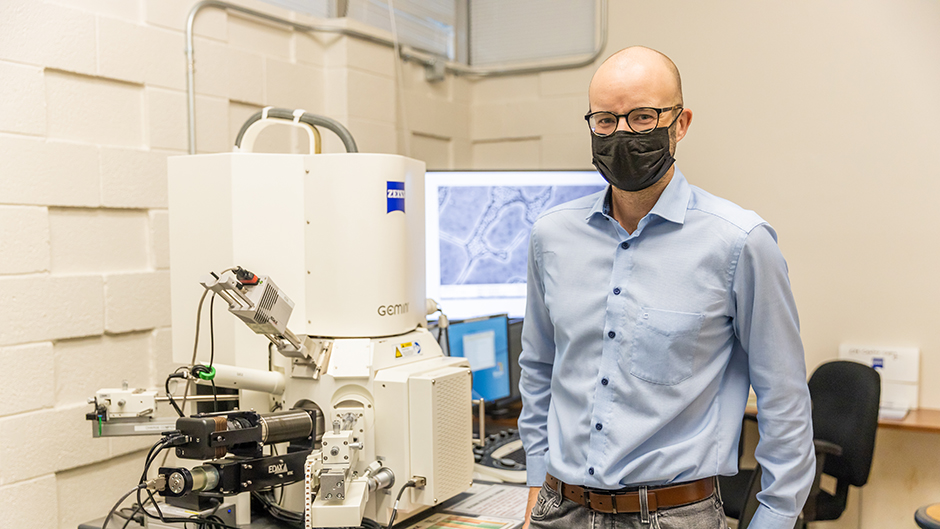James Coakley, an assistant professor in the College of Engineering’s Department of Mechanical and Aerospace Engineering, has received the prestigious National Science Foundation (NSF) Early Career Development (CAREER) award for his project “CAREER: Precipitation Pathways and Deformation Micromechanisms of Refractory Superalloys (RSAs).”
“I am absolutely delighted to receive an NSF Career Award and humbled to now be an NSF-funded researcher as my mentors have been.” Said Dr. Coakley “this award further develops a collective research thrust of advanced materials within the College of Engineering, where we strive to meet societal demands for advanced materials and manufacturing while synergistically reducing the talent gaps in science and engineering sectors.” he explained.
Coakley’s research focuses on RSAs, which are a new family of structural materials that possess a promising combination of high strength and plasticity at room-temperature and higher temperatures.
Structural materials that can endure higher temperatures are critical for revolutionizing the energy sector and aerospace industry while simultaneously advancing our military technologies. If able to withstand these extreme conditions, these materials would allow stationary gas turbines, which produce 40 percent of all US electricity, and aerospace gas turbines, which account for 5 percent of man-made global warming, to operate at higher temperatures. Higher engine temperatures provide greater engine efficiency and boost power output from powerplants and aviation, contributing to a stronger economy while reducing greenhouse gas emissions and enabling tactical superiority for military aircraft. His CAREER project will address knowledge-gaps regarding deformation as well as the stability of RSAs at high temperatures through advanced materials characterization, mechanical testing and simulation, including utilization of National Laboratory research facilities. Such analysis and understanding are critical for the accelerated materials development required to realize next generation powerplants and aerospace engines.
“The development of materials capable of sustaining higher temperatures and stresses is critical to societal well-being, allowing us to produce power more efficiently while simultaneously reducing greenhouse gas emissions” explained Dr. Coakley.
Additionally, Coakley and his team have been collaborating with the Phillip and Patricia Frost Museum of Science in Miami, which receives approximately 700,000 visitors annually. Through an integration of ongoing research and education initiatives, this collaboration aims to increase awareness and interest in metallurgy and its impact on lowering the CO2 and energy footprint of air travel and electricity production.
“We are excited to support Dr. Coakley as he establishes a world leading research group in the critical field of high temperature materials” said Pratim Biswas, Dean of the College of Engineering at the University of Miami, “This award recognizes that our faculty are among the best in the country.”
NSF CAREER Awards are prestigious and competitive awards given to junior faculty who exemplify the role of teacher-scholar through outstanding research, excellent education, and the integration of education and research within the context of the mission of their respective organizations.
Regarding the extensive impact of this award, Dr. Coakley explained that “The award will not only be used for research but will be used to enhance our curriculum and engage the community of Miami through a partnership with the Phillip and Patricia Frost Museum of Science in Miami.”

